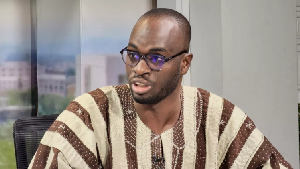Mr Fred Sakyi Boafo, Deputy Director in-charge of Child and Family Welfare, Department of Social Welfare, has called on the citizenry to help protect children in order to safeguard the country’s future.
He said the future of all nations hinged on human resource and since children formed the base of the human resource, it was imperative to put appropriate measures in place to ensure their survival and development.
Mr Boafo was speaking at a sensitization workshop, organized by the Department of Social Welfare with support from USAID and UNICEF for Community Structures and the Media in the Volta Region on the Child Care Reforms and Referral Pathways in Ghana.
He said child protection required a multi-sectoral approach, therefore, there was the need to sensitize the various community structures and the media on the Referral Pathways, which ensured that citizens were brought on board to achieve the needed childcare reforms.
Mr Boafo said Inter-sectorial Standard Operating Procedure (ISSOP) had been developed based on the country’s existing laws, regulations and official policies to protect children and improve family and caregiver welfare through social services support.
He urged community structures such as traditional leaders, social welfare workers, and the police, Domestic Violence and Victim Support Unit (DOVVSU), Commission on Human Right Administrative Justice (CHRAJ) among others to ensure that they responded effectively and timely to issues affecting children.
Mr Boafo called on parents to ensure that they gave the needed guardianship to their children and also urged pastors to also use the pulpit to educate members on issues relating to child protection.
Madam Stella Mawutor Agbezuhlor, Programme Head, Child Rights Promotion and Protection, Department of Social Welfare, Volta, underscored the importance of the programme as current changes in policy directions regarding childcare required effective participation of all actors and stakeholders so that “we would be able to take action that would benefit the children.”
She said it was necessary for the nation to take proper and best decisions that would benefit children greatly because they would soon be at the helm of affairs of the nation.
Madam Mawutor said though the various actors in the child protection system were doing a great work; lack of proper coordination among them was a great factor militating against their efforts hence the need to develop the referral pathways to ensure that each actor played its role effectively.
Madam Georgina Mensah, Deputy Director, Standard, Research, Monitoring and Evaluation Division, Department of Social Welfare, said the Child Care Reform initiative aimed at promoting adoption and foster parenting and also to reduce the rate at which children grew up in residential homes and institutions.
She said though Residential homes were good, children should not grow up from there because that would affect their relationship with their parents and families.
Madam Mensah said it also aimed at equipping parents with parenting skills, strengthen and educate families on proper childcare and protection and also prevent unnecessary separation of children from their families.
General News of Saturday, 16 November 2019
Source: ghananewsagency.org













